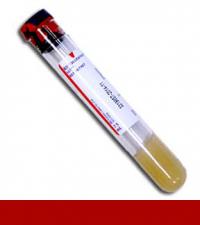Rubella Testing
Main Content
Test Code:
Rubella Immune Status: 802
Rubella Antibodies (IgG, IgM) Diagnostic: 37673
Rubella Antibodies IgM: 4422
Rubella Premarital: 5780
CPT Code(s):
Rubella Immune Status: 86762
Rubella Antibodies (IgG, IgM) Diagnostic: 86762 (x2)
Rubella Antibodies IgM: 86762
Rubella Premarital: 87762
Methodology:
Rubella Immune Status: Immunoassay (IA)
Rubella Antibodies (IgG, IgM) Diagnostic: Immunoassay (IA)
Rubella Antibodies IgM: Immunoassay (IA)
Rubella Premarital: Enzyme Immunoassay (EIA)
Clinical Significance:
Rubella Immune Status: Rubella is an acute exanthematous viral infection of children and adults. Rash, fever and lymphadenopathy characterize the illness. While many infections are subclinical, this virus has the potential to cause fetal infection with resultant birth defects. Diagnosis of a Rubella infection is best made serologically. In the absence of a current or recent infection, a demonstration of specific IgG on a serum sample is evidence of immunity to Rubella.
Rubella Antibodies (IgG, IgM) Diagnostic: Rubella (German Measles) is a common and usually benign viral infection of children. IgM antibody is detectable 11-25 days after the onset of exanthem, in most individuals 15-25 days after vaccination, and in 90-97% of infants with congenital rubella between 2 weeks and 3 months after birth. Acute and convalescent IgG titers may be interpreted to identify a >30% rise in the antibody index. A positive IgG antibody indicates successful immunization or past exposure.
Rubella Antibodies IgM: Rubella is an acute exanthematous viral infection of children and adults. Rash, fever and lymphadenopathy characterize the illness. While many infections are subclinical, this virus has the potential to cause fetal infection with resultant birth defects. In the absence of a current or recent infection, a demonstration of specific IgG on a serum sample is evidence of immunity to rubella. A positive rubella IgM result does not necessarily indicate current or recent infection. Without a history of exposure to rubella or symptoms consistent with rubella, the IgM result may be difficult to interpret. Rubella IgM can be false positive due to other causes (e.g., parvovirus, rheumatoid factor, cytomegalovirus). Rubella IgM may also persist for more than 12 months after vaccination or natural infection. For a serologic diagnosis of congenital rubella in the neonatal period, antibody to rubella virus should be measured in both infant and maternal sera. If IgM is detected in a newborn infants serum, it is probable that transplacental rubella infection has occurred.
Rubella Premarital: Rubella is an acute exanthematous viral infection of children and adults. Rash, fever and lymphadenopathy characterize the illness. While many infections are subclinical, this virus has the potential to cause fetal infection with resultant birth defects. Diagnosis of a rubella infection is best made serologically. In the absence of a current or recent infection, a demonstration of specific IgG on a serum sample is evidence of immunity to rubella.
Alternative Name(s): German Measles
Supply: T01 - Red/Gray SST 8.5mL
Preferred Specimen: Serum
Preferred Volume: 1mL
Transport Container: Serum Separator Tube (SST)
Transport Temperature: Room Temperature
Specimen Stability: Room Temperature: 4 Days
Rejection Criteria: Plasma; Cord Blood; Gross hemolysis; Gross lipemia
For additional supply or collection device information, please contact DLO's Customer Service at (800) 891-2917, option 2.
The CPT codes provided are based on AMA guidelines and are for informational purposes only. CPT coding is the sole responsibility of the billing party. Please direct any questions regarding coding to the Payor being billed.



CLIA